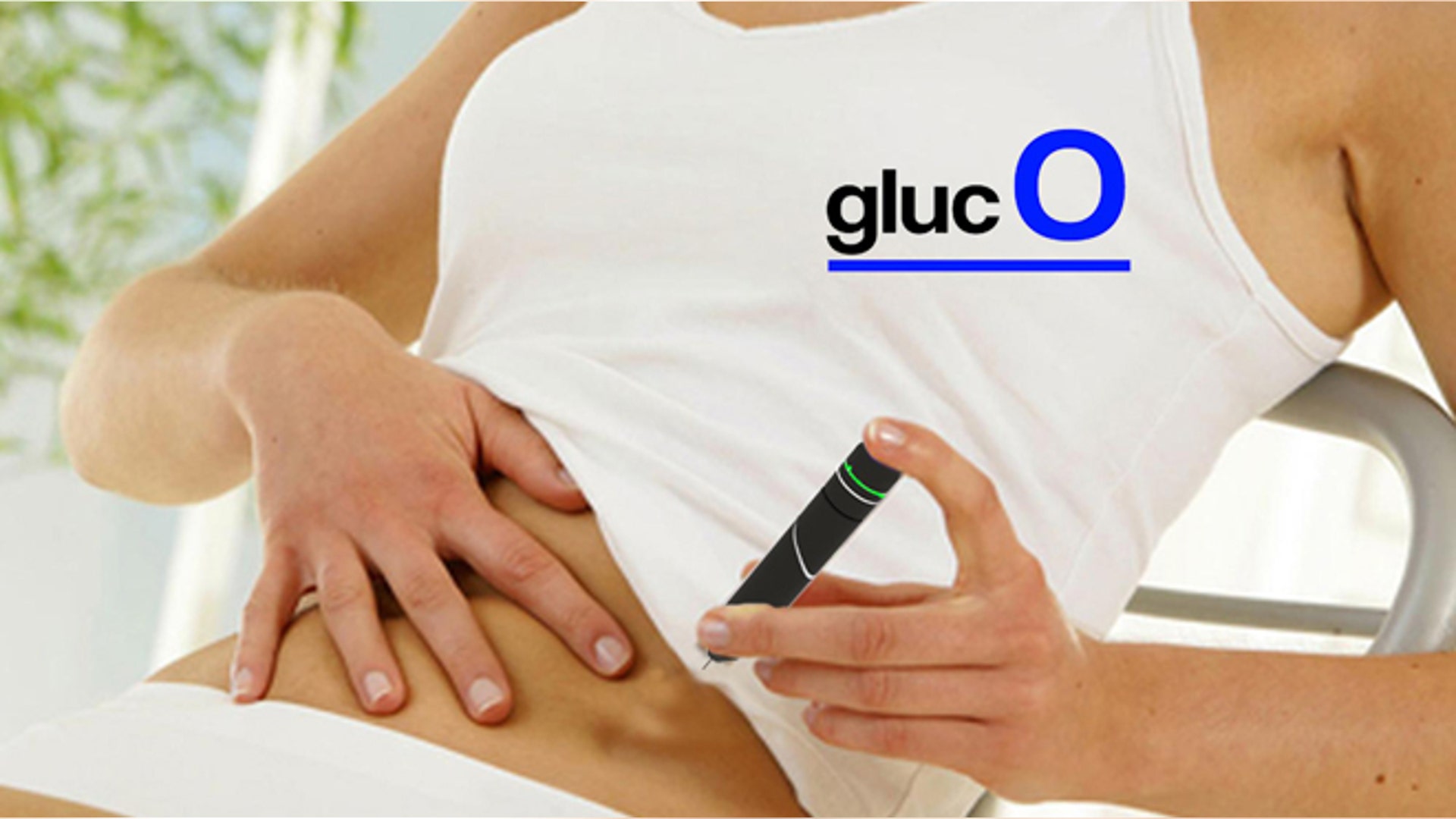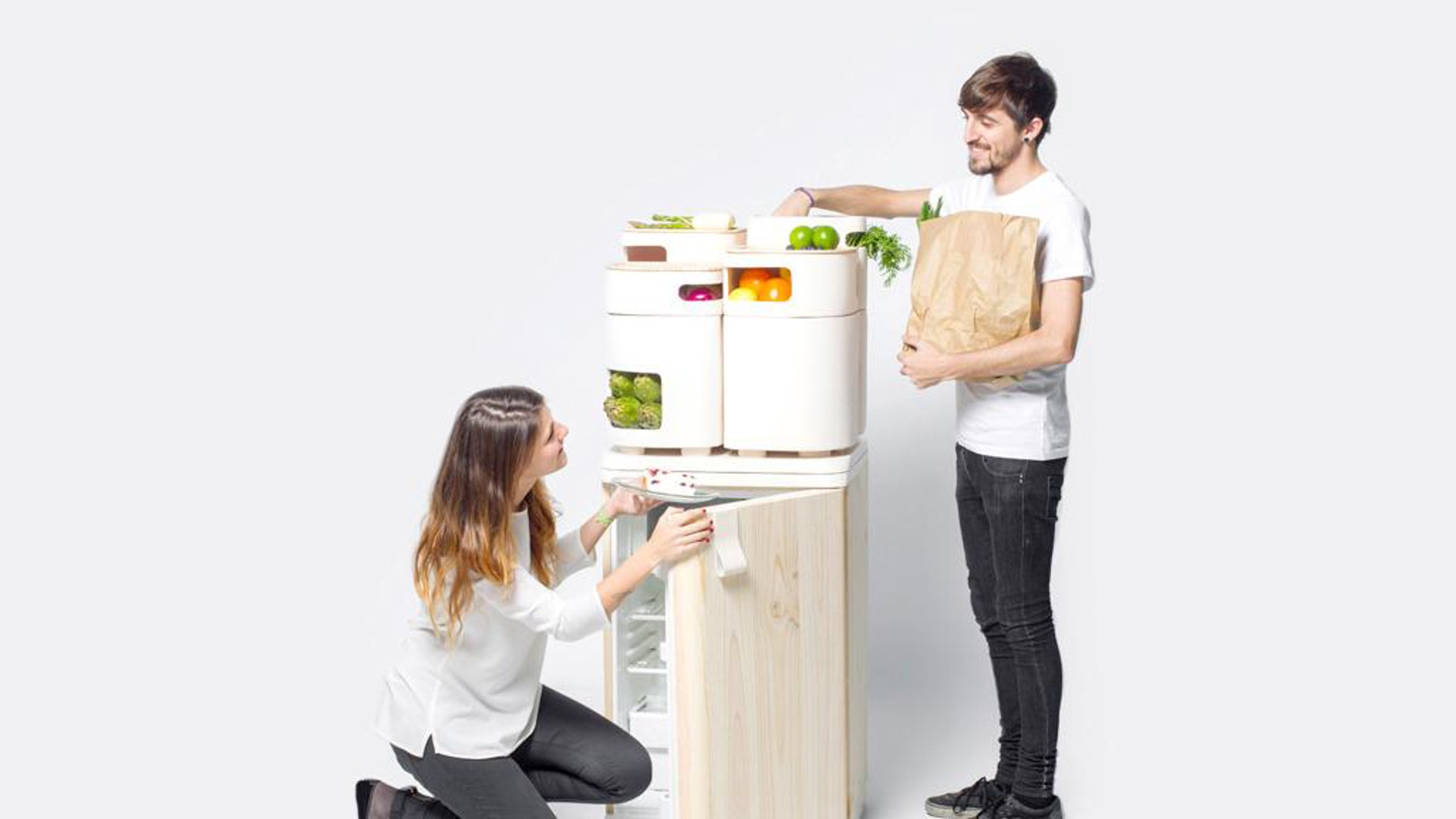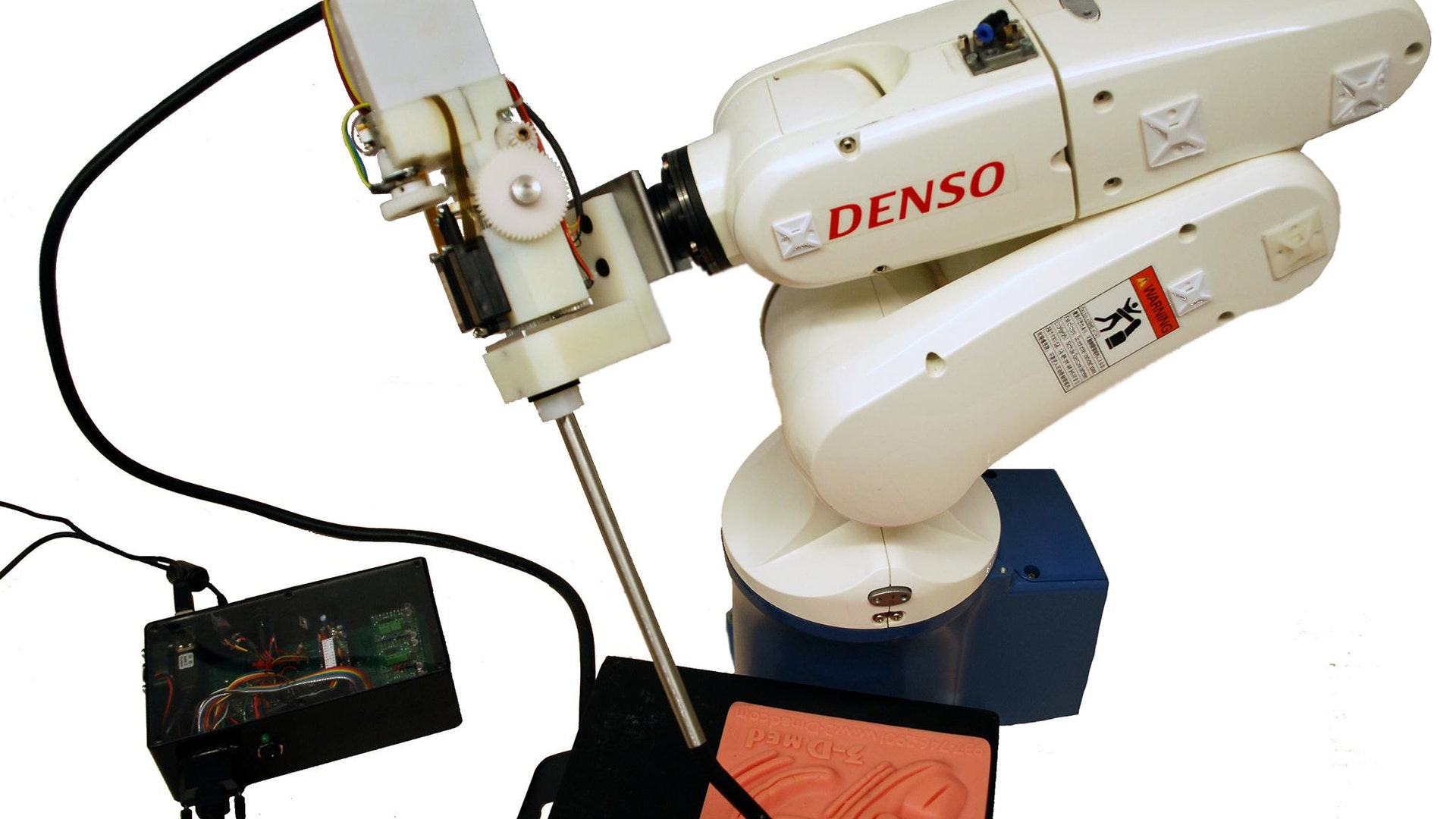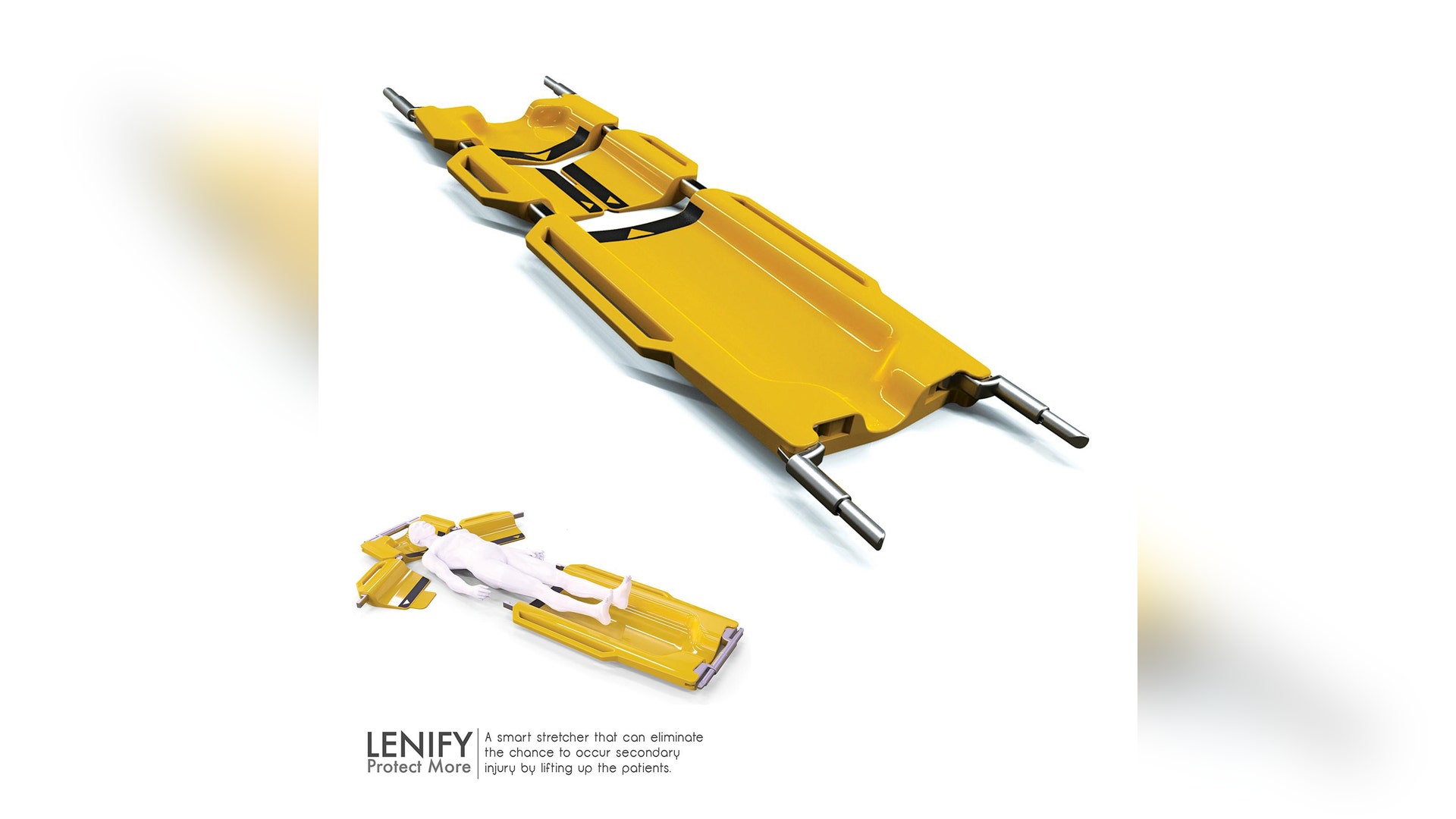Move Back
ADVERTISEMENT
Skip- Published12 Images
20 inventions that could change our world
650 projects from 18 different countries have been trimmed down to a final list of 20 inventions that promise to change our world. Here are 12 of the finalists for the 2013 James Dyson Awards. A winner will be chosen on November 7th and awarded $45,000. For the the full list of winners visit JamesDysonAward.org.
![<b>Cortex (New Zealand)</b>]() Problem: Traditional casts are heavy, clumsy, not waterproof, itchy and smelly. In addition they cannot be recycled. Solution: Cortex is a 3D printed cast system for fracture support. It is a lightweight, ergonomic, waterproof and ventilated support. After 3D scanning the limb a tight fitting cast is generated, with localised support in relation to the point of fracture. A strong recyclable plastic is used to reduce waste material.read moreCortex/Jake Evill/James Dyson FoundationShare
Problem: Traditional casts are heavy, clumsy, not waterproof, itchy and smelly. In addition they cannot be recycled. Solution: Cortex is a 3D printed cast system for fracture support. It is a lightweight, ergonomic, waterproof and ventilated support. After 3D scanning the limb a tight fitting cast is generated, with localised support in relation to the point of fracture. A strong recyclable plastic is used to reduce waste material.read moreCortex/Jake Evill/James Dyson FoundationShare![<b>Renewable Wave Power (UK)</b>]() Problem: Britain has 11,073km of coastline and the potential to produce 40-70KWh per metre, yet we harnesses less than 1% of this free, powerful resource. Current wave converters only harvest energy from waves moving on one axis, but in reality the sea and waves do not move in a predictable, linear, fashion. Solution: RWP is a device that absorbs forces from the peaks and troughs of waves on any axis, from any direction - making it more durable and more effective.read moreSam Etherington/Renewable Wave Power/James Dyson FoundationShare
Problem: Britain has 11,073km of coastline and the potential to produce 40-70KWh per metre, yet we harnesses less than 1% of this free, powerful resource. Current wave converters only harvest energy from waves moving on one axis, but in reality the sea and waves do not move in a predictable, linear, fashion. Solution: RWP is a device that absorbs forces from the peaks and troughs of waves on any axis, from any direction - making it more durable and more effective.read moreSam Etherington/Renewable Wave Power/James Dyson FoundationShare![<b>Gluco (France)</b>]() Problem: Currently diabetics use a device which breaks the skin to measure their blood sugar levels. Based on these results they adjust the level of insulin they have to inject. This can be fiddly, painful and time consuming. Solution: Gluco uses the patient’s smartphone linked to a watch to measure their blood sugar levels. This eliminates the need to break the skin. As insulin pen takes the results from the watch and prepares the appropriate dosage. If sugar levels become too high or too low, the information is transmitted to a nominated contact.read moreGluco/Florian Lemaitre/James Dyson FoundationShare
Problem: Currently diabetics use a device which breaks the skin to measure their blood sugar levels. Based on these results they adjust the level of insulin they have to inject. This can be fiddly, painful and time consuming. Solution: Gluco uses the patient’s smartphone linked to a watch to measure their blood sugar levels. This eliminates the need to break the skin. As insulin pen takes the results from the watch and prepares the appropriate dosage. If sugar levels become too high or too low, the information is transmitted to a nominated contact.read moreGluco/Florian Lemaitre/James Dyson FoundationShare![<b>Xarius (Germany)</b>]() Problem: If gadgets run out of battery when you are on the move it can be difficult to charge them. Current solutions largely rely on batteries. Solution: Xarius is a portable energy generator that allows the charging of electrical appliances using windpower – making it suitable for areas with limited access to mains electricity. It is composed of a foldable three-wing-system and an internal energy generator.read moreDavid Engelhorn/Xarius/James Dyson FoundationShare
Problem: If gadgets run out of battery when you are on the move it can be difficult to charge them. Current solutions largely rely on batteries. Solution: Xarius is a portable energy generator that allows the charging of electrical appliances using windpower – making it suitable for areas with limited access to mains electricity. It is composed of a foldable three-wing-system and an internal energy generator.read moreDavid Engelhorn/Xarius/James Dyson FoundationShare![<b>Titan arm (USA)</b>]() Problem: Occupational lifters such as warehouse workers face increased risk of arm and back injuries because they repeatedly lift heavy items. Those who have sustained arm or back injuries face a lengthy process to rebuild muscle and strength. Solution: Titan arm is an upper-body exoskeleton that augments human strength. It augments the user’s arm strength to reduce fatigue, and braces the back to prevent poor lifting posture. Titan arm can also be used to help stroke and injury victims rebuild muscle and re-learn fine motor control as well as assist people who suffer from permanent injuries or disabilities.read moreTitan arm/James Dyson FoundationShare
Problem: Occupational lifters such as warehouse workers face increased risk of arm and back injuries because they repeatedly lift heavy items. Those who have sustained arm or back injuries face a lengthy process to rebuild muscle and strength. Solution: Titan arm is an upper-body exoskeleton that augments human strength. It augments the user’s arm strength to reduce fatigue, and braces the back to prevent poor lifting posture. Titan arm can also be used to help stroke and injury victims rebuild muscle and re-learn fine motor control as well as assist people who suffer from permanent injuries or disabilities.read moreTitan arm/James Dyson FoundationShare![<b>Mamori (Ireland)</b>]() Problem: In high contact sport concussion is common, but often it is difficult to ascertain whether the player requires medical attention. Undiagnosed concussion can have a significant impact on long-term health. Solution: Mamori is a gum shield with integrated sensors. It measures any impact on a sportsman and transmits the data to medical staff at the side of the pitch. If contact to the head reaches a certain level the medical staff are able to react quickly and appropriately.read moreMark Dillon/Mamori/James Dyson AwardShare
Problem: In high contact sport concussion is common, but often it is difficult to ascertain whether the player requires medical attention. Undiagnosed concussion can have a significant impact on long-term health. Solution: Mamori is a gum shield with integrated sensors. It measures any impact on a sportsman and transmits the data to medical staff at the side of the pitch. If contact to the head reaches a certain level the medical staff are able to react quickly and appropriately.read moreMark Dillon/Mamori/James Dyson AwardShare![<B>BioWool (UK)</b>]() Problem: The coarse wool industry creates a vast volume of waste product that mostly goes to landfill. Solution: BioWool uses this waste material to make a biodegradable, flame resistant, biopolymer. It can be moulded into a variety of products and made with two finishes: one similar to plastic, the second hard on one side and soft like felt on the other. The material is made by carding the wool and then using needles to shred and pull the fibres together. After this a bio-resin is added to create a polymer that can be shaped and moulded.read moreDan McLoughlin/BioWool/James Dyson FoundationShare
Problem: The coarse wool industry creates a vast volume of waste product that mostly goes to landfill. Solution: BioWool uses this waste material to make a biodegradable, flame resistant, biopolymer. It can be moulded into a variety of products and made with two finishes: one similar to plastic, the second hard on one side and soft like felt on the other. The material is made by carding the wool and then using needles to shred and pull the fibres together. After this a bio-resin is added to create a polymer that can be shaped and moulded.read moreDan McLoughlin/BioWool/James Dyson FoundationShare![<b>Handie (Japan)</b>]() Problem: Dexterous prosthetic hands are expensive. Solution: Handie is an affordable prosthetic hand with inbuilt myoelectric sensors which can read brain signals. Costs have been reduced by using a smartphone to compute the electrical impulses on the skin’s surface. All components of the hand are easily modified and reproduced using a 3D printer. The hand relies on one motor that changes trajectory depending on the shape of an object.read moreHiroshi Yamaura/Handie/James Dyson FoundationShare
Problem: Dexterous prosthetic hands are expensive. Solution: Handie is an affordable prosthetic hand with inbuilt myoelectric sensors which can read brain signals. Costs have been reduced by using a smartphone to compute the electrical impulses on the skin’s surface. All components of the hand are easily modified and reproduced using a 3D printer. The hand relies on one motor that changes trajectory depending on the shape of an object.read moreHiroshi Yamaura/Handie/James Dyson FoundationShare![<b>OLTU (Spain)</b>]() Problem: Fruits and vegetables are best stored and ripened in specific conditions. The fridge is not always the optimum place to store them. Solution: OLTU uses the excess heat produced behind the fridge to power a separate tower unit. It contains four sections tailored to the favored conditions of different fruit and vegetables - cold dry, cold wet, fresh wet and dry warm.read moreFabio Molinas/OLTU/James Dyson FoundationShare
Problem: Fruits and vegetables are best stored and ripened in specific conditions. The fridge is not always the optimum place to store them. Solution: OLTU uses the excess heat produced behind the fridge to power a separate tower unit. It contains four sections tailored to the favored conditions of different fruit and vegetables - cold dry, cold wet, fresh wet and dry warm.read moreFabio Molinas/OLTU/James Dyson FoundationShare![<b>Roam (Australia)</b>]() Problem: Oxygen therapy is the fastest way to medically treat someone suffering from a sudden severe asthma attack. Existing oxygen cylinders are heavy (particularly for children) and expensive. Solution: Roam is a more practical oxygen cylinder – easy to use and simple to transport. Created for young children, Roam includes an innovative nasal mask that gently rests on the users face as they breathe in oxygen.read moreShanShan Wang/Roam/James Dyson FoundationShare
Problem: Oxygen therapy is the fastest way to medically treat someone suffering from a sudden severe asthma attack. Existing oxygen cylinders are heavy (particularly for children) and expensive. Solution: Roam is a more practical oxygen cylinder – easy to use and simple to transport. Created for young children, Roam includes an innovative nasal mask that gently rests on the users face as they breathe in oxygen.read moreShanShan Wang/Roam/James Dyson FoundationShare![<b>Robotic Surgery: Automated Suturing Tool (Canada)</b>]() Problem: Minimally invasive surgery leads to small incisions that can be difficult to suture. Solution: The automated suturing tool is aimed for laparoscopic surgery, invasive surgery focused on the abdominal area. Eliminating the need for manual suturing means the device can save valuable time in the operating room, save money for hospitals and free up operating rooms for other patients.read moreRobotic Surgery: Automated Suturing Tool/Karl Price/James Dyson FoundationShare
Problem: Minimally invasive surgery leads to small incisions that can be difficult to suture. Solution: The automated suturing tool is aimed for laparoscopic surgery, invasive surgery focused on the abdominal area. Eliminating the need for manual suturing means the device can save valuable time in the operating room, save money for hospitals and free up operating rooms for other patients.read moreRobotic Surgery: Automated Suturing Tool/Karl Price/James Dyson FoundationShare![<b>Lenify (USA)</b>]() Problem: On traditional stretchers, patients must be lifted and placed onto the canvas. Moving the patient can often cause secondary injury – sometimes worse than the initial injury. Solution: Lenify is divided into three pieces, allowing first responders to slide head, body and leg sections under the patient in turn, minimizing how much they have to adjust the patient. It is secured by a handle locking element.read moreTa-Chi Lin/Lenify/James Dyson FoundationShare
Problem: On traditional stretchers, patients must be lifted and placed onto the canvas. Moving the patient can often cause secondary injury – sometimes worse than the initial injury. Solution: Lenify is divided into three pieces, allowing first responders to slide head, body and leg sections under the patient in turn, minimizing how much they have to adjust the patient. It is secured by a handle locking element.read moreTa-Chi Lin/Lenify/James Dyson FoundationShare- Published12 Images
20 inventions that could change our world
650 projects from 18 different countries have been trimmed down to a final list of 20 inventions that promise to change our world. Here are 12 of the finalists for the 2013 James Dyson Awards. A winner will be chosen on November 7th and awarded $45,000. For the the full list of winners visit JamesDysonAward.org.
Move Forward
- 20 inventions that could change our world












Thumbnail View
Image 0 of 12











